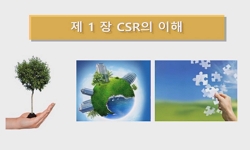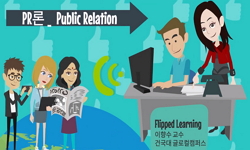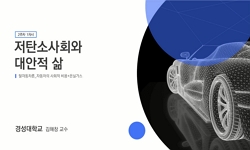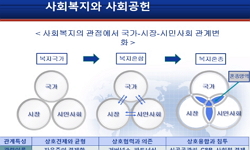Objectives This study examined effects of green claims made by inherently ungreen product companies, specifically focusing on whether implicit green claims using natural imagery would be more effective than explicit green claims using detailed environ...
http://chineseinput.net/에서 pinyin(병음)방식으로 중국어를 변환할 수 있습니다.
변환된 중국어를 복사하여 사용하시면 됩니다.
- 中文 을 입력하시려면 zhongwen을 입력하시고 space를누르시면됩니다.
- 北京 을 입력하시려면 beijing을 입력하시고 space를 누르시면 됩니다.

Effects of Implicit vs. Explicit Green Claims for Inherently Ungreen Products on Consumers’ Virtual Nature Experience, Brand Attitude, and Purchase Intention
한글로보기https://www.riss.kr/link?id=A107019629
-
저자
Maral Abdollahi (University of Minnesota) ; Jacqueline Parr (St. Catherine University) ; 허지수 (University of Minnesota)

- 발행기관
- 학술지명
- 권호사항
-
발행연도
2020
-
작성언어
English
-
주제어
CSR ; 친환경마케팅 ; 친환경경영 ; 녹색경영 ; 위장환경주의 ; CSR ; environmental marketing ; environmental claims ; green claims ; greenwashing
-
등재정보
KCI등재
-
자료형태
학술저널
- 발행기관 URL
-
수록면
37-57(21쪽)
-
KCI 피인용횟수
0
- DOI식별코드
- 제공처
-
0
상세조회 -
0
다운로드
부가정보
다국어 초록 (Multilingual Abstract)
Objectives This study examined effects of green claims made by inherently ungreen product companies, specifically focusing on whether implicit green claims using natural imagery would be more effective than explicit green claims using detailed environmental statements. We compared the effects of implicit vs. explicit green claims on consumers’ virtual nature experience, brand attitude, and purchase intention.
Methods Two rounds of online experiments were conducted with a sample of 350 U.S. adults and experimental stimuli representing the two different green claim conditions.
Results Overall, our results show that implicit green claims lead to stronger virtual nature experience than explicit green claims. In other words, inherently ungreen products that are traditionally perceived as not environmentally friendly and not associated with nature can be transformed by an implicit green claim to evoke virtual nature experience. In contrast to previous findings, which showed that implicit green claims positively influenced brand attitude, our study findings demonstrate no such effects in the context of inherently ungreen products.
Conclusions Our results show that male and female participants respond differently regarding virtual nature experience and purchase intention across claim types.
참고문헌 (Reference)
1 Lee, J., "When consumers penalize not so green products" 35 (35): 36-46, 2018
2 Levi, D., "Virtual nature, the future effects of information technology on our relationship to nature" 31 (31): 203-226, 1999
3 Hartmann, P., "Virtual nature experiences as emotional benefits in green product consumption : The moderating role of environmental attitudes" 40 (40): 818-842, 2008
4 TerraChoice, "The seven sins of greenwashing"
5 Ellen, P. S., "The role of perceived consumer effectiveness in motivating environmentally conscious behaviors" 10 (10): 102-117, 1991
6 Kim, J., "The role of affect in attitude formation : A classical conditioning approach" 26 (26): 143-152, 1998
7 Nuttavuthisit, K., "The importance of consumer trust for the emergence of a market for green products : The case of organic food" 140 (140): 323-337, 2017
8 Federal Trade Commission., "The green guides: Statement of basis and purpose"
9 Schmuck, D., "The effects of environmental brand attributes and nature imagery in green advertising" 12 (12): 414-429, 2018
10 Laufer, W. S., "Social accountability and corporate greenwashing" 43 (43): 253-261, 2003
1 Lee, J., "When consumers penalize not so green products" 35 (35): 36-46, 2018
2 Levi, D., "Virtual nature, the future effects of information technology on our relationship to nature" 31 (31): 203-226, 1999
3 Hartmann, P., "Virtual nature experiences as emotional benefits in green product consumption : The moderating role of environmental attitudes" 40 (40): 818-842, 2008
4 TerraChoice, "The seven sins of greenwashing"
5 Ellen, P. S., "The role of perceived consumer effectiveness in motivating environmentally conscious behaviors" 10 (10): 102-117, 1991
6 Kim, J., "The role of affect in attitude formation : A classical conditioning approach" 26 (26): 143-152, 1998
7 Nuttavuthisit, K., "The importance of consumer trust for the emergence of a market for green products : The case of organic food" 140 (140): 323-337, 2017
8 Federal Trade Commission., "The green guides: Statement of basis and purpose"
9 Schmuck, D., "The effects of environmental brand attributes and nature imagery in green advertising" 12 (12): 414-429, 2018
10 Laufer, W. S., "Social accountability and corporate greenwashing" 43 (43): 253-261, 2003
11 Banerjee, S., "Shades of green : A multidimensional analysis of environmental advertising" 24 (24): 21-31, 1995
12 Hartmann, P., "Nature imagery in non-green advertising : The effects of emotion, autobiographical memory, and consumer’s green traits" 45 (45): 427-440, 2016
13 Schmuck, D., "Misleading consumers with green advertising? An affect-reason-involvement account of greenwashing effects in environmental advertising" 47 (47): 127-145, 2018
14 Wagner, E. R., "Methodology for evaluating green advertising of forest products in the United States : A content analysis" 52 (52): 17-23, 2002
15 Baum, L., "It’s not easy being green … Or is it? A Content analysis of environmental claims in magazine advertisements from the United States and United Kingdom" 6 (6): 423-440, 2012
16 Segev, S., "Is your product really green? A content analysis to reassess green advertising" 45 (45): 85-93, 2016
17 Aaker, D. A., "Implementing the concept of transformational advertising" 9 (9): 237-253, 1992
18 Russell, R., "Humans and nature : How knowing and experiencing nature affect well-being" 38 (38): 473-502, 2013
19 Kushwaha, G. S., "Green initiatives : a step towards sustainable development and firm’s performance in the automobile industry" 121 : 116-129, 2016
20 Hartmann, P., "Green branding effects on attitude : Functional versus emotional positioning strategies" 23 (23): 9-29, 2005
21 Hartmann, P., "Green advertising revisited" 28 (28): 715-739, 2009
22 Nielsen, "Global consumers seek companies that care about environmental issues" Insights
23 Dangelico, R. M., "From green product definitions and classifications to the Green Option Matrix" 18 (18): 1608-1628, 2010
24 Kroeber-Riel, W., "Emotional product differentiation by classical conditioning" 11 (11): 538-543, 1984
25 Kinnear, T. C., "Ecologically concerned consumers : Who are they?" 38 (38): 20-24, 1974
26 Snider, J., "Corporate social responsibility in the 21st century : A view from the world's most successful firms" 48 (48): 175-187, 2003
27 Matthes, J., "Consumers’ green involvement and the persuasive effects of emotional versus functional ads" 67 (67): 1885-1893, 2014
28 Hartmann, P., "Consumer attitude and purchase intention toward green energy brands : The roles of psychological benefits and environmental concern" 65 (65): 1254-1263, 2012
29 Petty, R. E., "Central and peripheral routes to advertising effectiveness : The moderating role of involvement" 10 (10): 135-146, 1983
30 Carlson, L., "A content analysis of environmental advertising claims : A matrix method approach" 22 (22): 27-39, 1993
31 Siano, A., ""More than words" : Expanding the taxonomy of greenwashing after the Volkswagen scandal" 71 : 27-37, 2017
32 Rim, H., ""How negative becomes less negative" : Understanding the effects of comment valence and response sidedness in social media" 66 (66): 475-495, 2016
동일학술지(권/호) 다른 논문
분석정보
인용정보 인용지수 설명보기
학술지 이력
| 연월일 | 이력구분 | 이력상세 | 등재구분 |
|---|---|---|---|
| 2027 | 평가예정 | 재인증평가 신청대상 (재인증) | |
| 2021-01-01 | 평가 | 등재학술지 유지 (재인증) |  |
| 2018-01-01 | 평가 | 등재학술지 유지 (등재유지) |  |
| 2015-01-01 | 평가 | 등재학술지 유지 (등재유지) |  |
| 2014-06-23 | 학술지명변경 | 외국어명 : Journal of Public Relations Research -> Journal of Public Relations |  |
| 2014-03-20 | 학회명변경 | 한글명 : 한국홍보학회 -> 한국PR학회 |  |
| 2011-01-01 | 평가 | 등재학술지 유지 (등재유지) |  |
| 2009-01-01 | 평가 | 등재학술지 유지 (등재유지) |  |
| 2006-01-01 | 평가 | 등재학술지 선정 (등재후보2차) |  |
| 2005-01-01 | 평가 | 등재후보 1차 PASS (등재후보1차) |  |
| 2003-01-01 | 평가 | 등재후보학술지 선정 (신규평가) |  |
학술지 인용정보
| 기준연도 | WOS-KCI 통합IF(2년) | KCIF(2년) | KCIF(3년) |
|---|---|---|---|
| 2016 | 1.55 | 1.55 | 1.54 |
| KCIF(4년) | KCIF(5년) | 중심성지수(3년) | 즉시성지수 |
| 1.72 | 1.71 | 2.371 | 0.54 |




 KCI
KCI KISS
KISS






